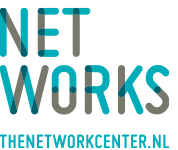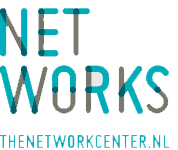About
In the spirit of the first and second CCEGN workshops, the third interdisciplinary workshop on "Critical and Collective Effects in Graphs and Networks" (CCEGN 2018) continues to explore the emerging topics at the interface between random graph theory and network science. The third edition of CCEGN will bring together top researchers in mathematics, statistics, and physics that work on random graphs, null models of real networks, and theoretical foundations of network science. The workshop aims at facilitating the transfer of ideas, insights and interdisciplinary approaches to tackles new and exciting problems in random graphs and real networks. There will be open problem sessions and ample opportunity for discussion. Topics include:
- Graphons and graph limits
- Statistics of subgraphs and high-order structures
- Random geometric graph models
- Maximum entropy graph ensembles
- Diffusion processes in random graphs
- Percolation and phase transitions in random graphs
- Consistent estimators of model parameters
Organizers
- Remco van der Hofstad (Eindhoven University of Technology, The Netherlands)
- Dmitri Krioukov (Northeastern University, USA)
- Pim van der Hoorn (Northeastern University, USA)
- Andrey Raigorodsky (Moscow Institute of Physics and Technology, Russia)
Speakers
- Ginestra Bianconi (Queen Mary University of London, UK) Abstract
- Marián Boguñá (Universitat de Barcelona, Spain) Abstract
- François Caron (University of Oxford, UK) Abstract
- Sergey Dorogovtsev (University of Aveiro, Portugal ) Abstract
- Tobias Friedrich (Potsdam University, Germany) Abstract
- Diego Garlaschelli (IMT Lucca, Italy and Leiden University, The Netherlands) Abstract
- Alexander Gorsky (Moscow Institute of Physics and Technology, Russia) Abstract
- Shlomo Havlin (Bar-Ilan University, Israel) Abstract
- Frank den Hollander (Leiden University, The Netherlands) Abstract
- Olav Kallenberg (Auburn University, USA) Abstract
- Júlia Komjáthy (Eindhoven University of Technology, The Netherlands) Abstract
- Lasse Leskelä (Aalto University, Helsinki) Abstract
- Gabor Lippner (Northeastern, USA) Abstract
- Nelly Litvak (University of Twente and Eindhoven University of Technology, The Netherlands) Abstract
- Piet Van Mieghem (Delft University of Technology, The Netherlands) Abstract
- Peter Mörters (University of Bath, UK) Abstract
- Tobias Müller (Groningen University, The Netherlands) Abstract
- Tiago Peixoto (University of Bath, UK and ISI Foundation, Italy) Abstract
- Yuval Peres (Microsoft Research, USA) Abstract
- Miklos Z. Racz (Princeton, USA) Abstract
- Victor Veitch (Columbia University, USA) Abstract
Program
Monday 18-06 Chair: Remco van der Hofstad
|
09.30 – 09.50 |
Welcome and registration |
|
|
09.50 – 10.00 |
Opening |
Remco van der Hofstad |
|
10.00 – 11.00 |
Shlomo Havlin |
|
|
11.00 – 11.30 |
Break |
|
|
11.30 – 12.30 |
Sergey Dorogovtsev |
|
|
12.30 – 14.30 |
Lunch |
|
|
14.30 – 15.30 |
Ginestra Bianconi |
Emergent Hyperbolic Network Geometry and Frustrated Synchronization |
|
15.30 – 16.00 |
Break |
|
|
16.00 – 17.00 |
Piet Van Mieghem |
Tuesday 19-06 Chair: Pim van der Hoorn
|
10.00 – 11.00 |
Olav Kallenberg |
Representation and estimation problems for exchangeable and related arrays |
|
11.00 – 11.30 |
Break |
|
|
11.30 – 12.30 |
François Caron |
Sparse graphs using exchangeable random measures: Models, properties and applications |
|
12.30 – 14.30 |
Lunch |
|
|
14.30 – 15.30 |
Viktor Veitch |
Empirical Risk Minimization and Stochastic Gradient Descent for Relational Data |
|
15.30 – 16.00 |
Break |
|
|
16.00 – 17.00 |
Marián Boguñá |
Clustering induces a double percolation transition in heterogeneous complex networks |
|
17.00 – 18.00 |
Alexander Gorsky |
|
|
18.30 - |
Conference dinner |
|
Wednesday 20-06 Chair: Dimtri Krioukov
|
10.00 – 11.00 |
Tiago Peixoto |
Reconstructing networks with heterogeneous and unknown errors |
|
11.00 – 11.30 |
Break |
|
|
11.30 – 12.30 |
Lasse Leskelä |
Parameter estimators of sparse random intersection graphs with thinned communities |
|
12.30 – 14.30 |
Lunch |
|
|
14.30 – 15.30 |
Peter Mörters |
Metastability of the contact process on evolving scale-free networks |
|
15.30 – 16.00 |
Break |
|
|
16.00 – 17.00 |
Nelly Litvak |
Mean Field Analysis of Personalized PageRank with Implications for Local Graph Clustering |
Thursday 21-06 Chair: Andrey Raigorodsky
|
10.00 – 11.00 |
Yuval Peres |
Estimating the size of a graph from random walks and random walks on dynamical percolation |
|
11.00 – 11.30 |
Break |
|
|
11.30 – 12.30 |
Tobias Friedrich |
|
|
12.30 – 14.30 |
Lunch |
|
|
14.30 – 15.30 |
Gabor Lippner |
|
|
15.30 – 16.00 |
Break |
|
|
16.00 – 17.00 |
Diego Garlaschelli |
Reconnecting statistical physics and combinatorics beyond ensemble equivalence |
Friday 22-06 Chair: t.b.a.
|
10.00 – 11.00 |
Júlia Komjáthy |
|
|
11.00 – 11.30 |
Break |
|
|
11.30 – 12.30 |
Frank den Hollander |
|
|
12.30 – 14.30 |
Lunch |
|
|
14.30 – 15.30 |
Miklos Z. Racz |
|
|
15.30 – 16.00 |
Break |
|
|
16.00 – 17.00 |
Tobias Müller |
Registration
Eventbrite Registration Page for CCEGN3.
Logistics
Venue
Department of Mathematics and Computer Science
Eindhoven University of Technology
De Groene Loper 5, 5612 AE EINDHOVEN, The Netherlands
Eurandom is located on the campus of Eindhoven University of Technology, in the MetaForum building, 4th floor. The university is located at 10 minutes walking distance from Eindhoven main railway station (take the exit north side and walk towards the tall building on the right with the sign TU/e).
Accessibility TU/e campus and map.
Travel
For those arriving by plane, there is a convenient direct train connection between Amsterdam Schiphol airport and Eindhoven. This trip will take about one and a half hour. For more detailed information, please consult the NS travel information pages.
Many low cost carriers also fly to Eindhoven Airport. There is a bus connection to the Eindhoven central railway station from the airport. (Bus route number 401) For details on departure times consult Public Transport.
The University can be reached easily by car from the highways leading to Eindhoven. For details: Route and map TU/e campus.
Sponsors
The Netherlands Organisation for Scientific Research (NWO) ensures quality and innovation in science and facilitates its impact on society. Its main task is to fund scientific research at public research institutions in the Netherlands, especially universities.
NETWORKS is a large research program in The Netherlands that aims at bringing together algorithmics and stochastics to advance the mathematical theory of networks.
The Network Science Institute (NetSI) is a multi-disciplinary research community supporting innovative research and training in network science with the goal to understand networked systems by discovering the underlying principles, properties and purpose of their connectivity.






